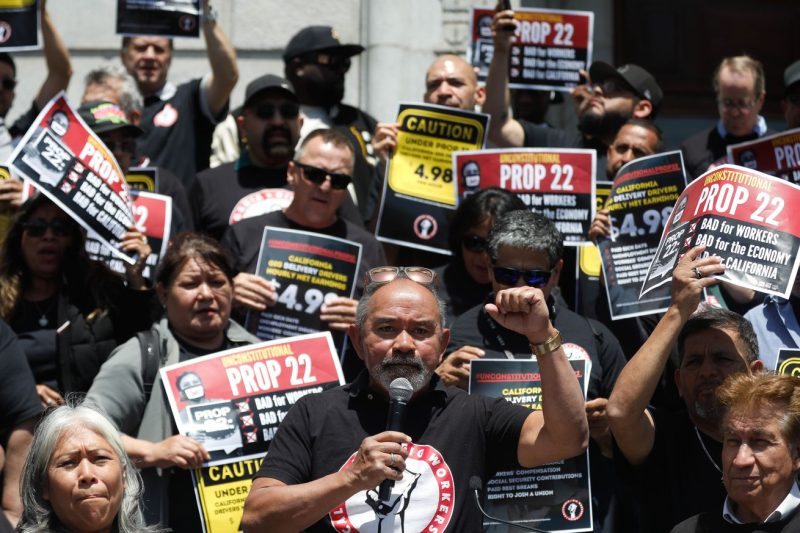In a landmark victory for gig economy giants Uber, Lyft, and DoorDash, California voters passed Proposition 22, allowing these companies to classify their workers as independent contractors rather than employees. This move has far-reaching implications not only for gig workers in California but also for the future of labor regulations and the gig economy nationwide.
The passage of Proposition 22 represents a significant win for these tech companies, who heavily invested in a campaign to sway public opinion in their favor. By successfully arguing that their drivers and delivery workers prefer the flexibility and independence that come with being classified as independent contractors, Uber, Lyft, and DoorDash have circumvented labor laws that would have required them to provide benefits, minimum wage, and other protections to their workers.
Critics of Proposition 22, including labor unions and worker advocacy groups, argue that this measure sets a dangerous precedent for the gig economy, undermining workers’ rights and allowing corporations to avoid their responsibilities. They warn that other states may follow California’s lead, leading to further erosion of labor protections and benefits for workers in the gig economy.
The aftermath of the passage of Proposition 22 remains to be seen, as it will likely have ripple effects on the gig economy and labor law landscape. With a new precedent set in California, other states may consider similar measures, potentially reshaping the regulatory environment for gig workers across the country. Additionally, the response from labor unions and advocacy groups is expected to be strong, as they push back against what they see as a detrimental move for worker rights.
In conclusion, Proposition 22’s approval marks a pivotal moment in the ongoing debate over gig worker classification and labor rights. While Uber, Lyft, and DoorDash have emerged victorious in this battle, the implications of this decision are wide-ranging and will likely shape the future of the gig economy and labor regulations. As the dust settles, the true impact of Proposition 22 will become more apparent, revealing the extent to which gig companies can influence labor laws and worker protections.
